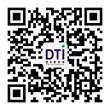Temu Handbag RSL-PFAS Testing Process
Date:2025-05-22 09:59:26 Classification
:【question】 Visits:
Temu Handbag RSL-PFAS Testing Process
1. Overview of RSL-PFAS Testing
- Definition: RSL-PFAS testing refers to the testing of per- and polyfluoroalkyl substances (PFAS) in products to ensure that their content meets relevant regulatory requirements.
- Key Facts:
- PFAS is a class of chemicals widely used in waterproof, oil-proof and stain-proof treatments.
- The Temu platform requires RSL-PFAS testing for products such as handbags to ensure product safety and compliance.
- Testing standards vary by country and region, but generally include restrictions on the types and concentrations of specific PFAS substances.
- Major debate: Some manufacturers believe that PFAS testing is costly and time-consuming, but compliance is a necessary step to protect consumer health and the environment.
2. RSL-PFAS Testing Standards for Handbags
- Definition: The RSL-PFAS Testing Standards for Handbags refer to the specific testing requirements that handbags need to meet when undergoing RSL-PFAS testing.
- Key facts:
- The main testing standards include EU REACH regulations, US EPA regulations, etc.
- Testing items include 6-15 PFAS substances such as perfluorocarboxylic acids (such as PFOA, PFNA), perfluorosulfonic acids (such as PFOS, PFHxS).
- For example, food contact materials need to comply with FDA 176.170 migration test standards.
- Latest developments: With the update of regulations, testing standards are also constantly adjusted to ensure higher safety.
3. RSL-PFAS testing process for handbags
- Definition: The RSL-PFAS testing process for handbags refers to the entire process from submitting samples to obtaining test reports.
- Key facts:
- Submit samples: The handbag samples need to be sent to the testing agency and relevant documents provided.
- Conduct tests: The testing agency conducts various tests on the samples to ensure compliance with the standards.
- Obtain report: If the test passes, the testing agency will issue an RSL-PFAS test report.
- Submit platform review: Submit the test report and related certification materials to the Temu platform for review.
- Major controversy: Some companies believe that the test cycle is too long, which affects the speed of product launch, but compliance is a necessary step to ensure product quality.
4. Cost and time of RSL-PFAS testing for handbags
- Definition: The cost and time of RSL-PFAS testing for handbags refers to the time and cost required for RSL-PFAS testing.
- Key facts:
- Cost: RSL-PFAS testing costs vary depending on product type and test items, usually ranging from hundreds to thousands of dollars.
- Time: It usually takes 2-4 weeks from submitting samples to obtaining reports.
- Major controversy: Some small companies believe that the cost is too high, but compliance is a necessary condition for entering the market.
5. Compliance and risks of RSL-PFAS testing for handbags
- Definition: Compliance and risks of RSL-PFAS testing for handbags refer to the compliance and potential risks of products in the market after passing RSL-PFAS testing.
- Key facts:
- Compliance: Products that pass RSL-PFAS testing can avoid being removed from the shelves or fined when sold on the Temu platform.
- Risk: Products that fail RSL-PFAS testing may face risks such as customs seizure and mandatory recall.
- Major controversy: Some companies believe that RSL-PFAS testing is an additional burden, but compliance is a necessary measure to protect consumers and corporate reputation.




 Shen Gongwang Security: 44030602006947
Shen Gongwang Security: 44030602006947